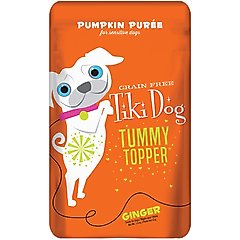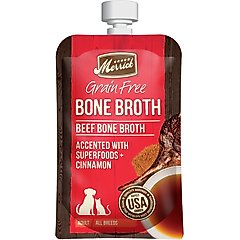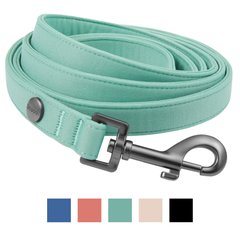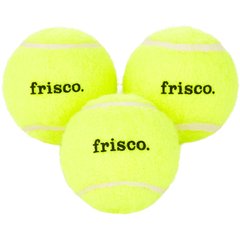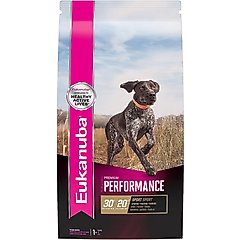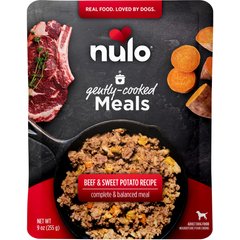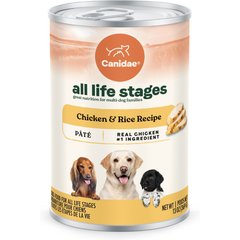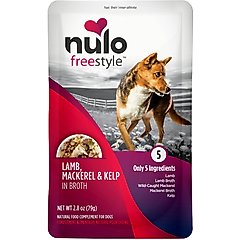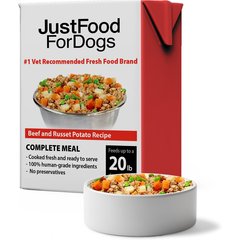What Is the Best Dog Food for Picky Eaters?
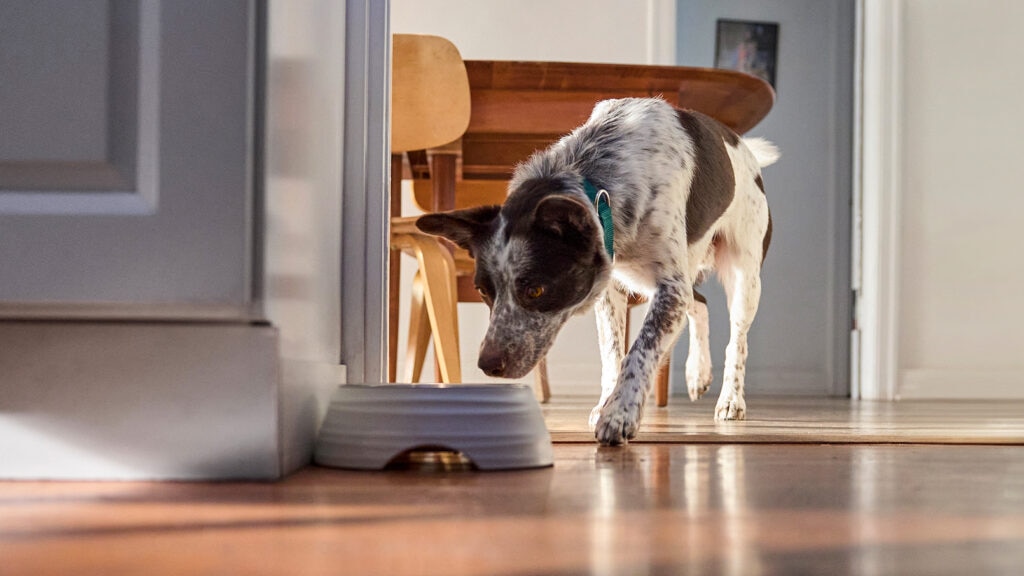
Photo by Chewy
Many dogs love eating more than doing just about anything else. But at some point, most pet parents will have to manage a dog who is picky with food.
Let’s dig into what you need to know about picky eating, including how to find a good dog food for picky eaters.
Speak with your veterinarian before changing your dog’s diet.
Key Takeaways
- Dogs with picky eating habits may benefit from food that combines aroma, texture, and nutritional density tailored to their life stage.
- Dry food recommendations like Eukanuba Premium Performance 30.20 offer balanced nutrition and enhanced palatability.
- Wet and fresh food options, such as Nulo Gently-Cooked Beef & Sweet Potato and JustFoodForDogs Pantry Fresh, are often more enticing due to their moisture and aroma.
- Food toppers can boost flavor and encourage your dog’s interest in meals when added to their normal dog food.
- If your dog is a picky eater, consult your vet for tips and to rule out any underlying medical causes for their behavior.
What Motivates a Dog To Eat?
A dog’s appetite is influenced by many factors:
- Smell plays a big role in their motivation to eat. A dog’s sense of smell is much better than ours, and strong, appetizing smells are naturally attractive.
- The taste and texture of the food are also important. Some dogs may prefer canned chicken-based food, while others like to crunch on beefy kibble.
- A dog’s own body also influences whether they want to eat. Health, hormones, and feeling full (or not) are all involved.
Why Is My Dog a Picky Eater?
Picky eating may be normal in some dogs, but it can also be an important sign that something is wrong with their health or environment. Consult a veterinarian if your dog’s eating habits change suddenly or they’re consistently skipping meals.
Causes of picky eating include the following:
Underlying Medical Conditions
Illness, dental pain, gastrointestinal issues, and many other health concerns can make eating uncomfortable or unappealing for your dog.
Too Many Extras
If your dog is getting excessive treats or table scraps, they might be too full to find their food appealing at mealtimes.
Behavioral Causes
Some dogs learn that if they wait, they’ll get something “better.” This can lead to meal-skipping as a learned behavior.
Problems With the Food
Some dogs are sensitive to the texture or temperature of their meals. Dogs will also avoid eating foods that are noticeably spoiled or contaminated.
Breed-Specific Traits
Certain breeds, such as Basenjis, Toy Poodles, and Yorkies, are more prone to picky eating.
Age and Life Stage
The nutritional needs of puppies and seniors are often different from those of an adult dog, and their appetites can vary as a result.
Stress and Anxiety
Dogs who are harassed at mealtimes or stressed for other reasons might be too nervous to eat well.
Seasonal Appetite Changes
Many dogs naturally eat less during warmer months or after a big change in their activity level.
Is My Dog Truly Picky or Is This Normal Behavior?
Here, we’ve listed various behaviors and whether they’re considered normal or a picky–eater problem.
| Behavior | Normal Eating Variation | Picky-Eater Problem |
|---|---|---|
| Skipping a meal | Yes, as long as it’s only every now and then | Skipping multiple meals consistently |
| Sniffing food and walking away | Normal for some dogs, as long as they eat later | Leaves food untouched for hours or days |
| Preferring certain textures or flavors | Common preference | Won’t eat at all unless food is altered or hand-fed |
| Acting nervous around food | No | Yes |
| Vomiting, diarrhea, lethargy, or other symptoms | No | Yes |
| Weight loss | No, although they may have always been on the skinny side of normal | Yes |
| Sudden change in appetite | No | Yes |
How Much Food Should a Dog Eat?
If your dog is a picky eater, it’s especially important to ensure that they get all the nutrition they need to thrive. How much food a dog should eat depends on their age, size, activity level, health status, and the type of food you offer.
Use the feeding chart printed on the dog food label to give you an idea of how much your dog should be eating.
How Can I Help Entice My Picky Eater?
Switch to a Different Food
It’s important to have your dog evaluated by a veterinarian if there is any chance that a medical problem could be contributing to their picky eating. But once your vet has determined that your dog is healthy, they might recommend you make some changes to entice your dog to eat more.
Wet dog food and fresh dog food might be more tempting for a picky eater, and diets designed for highly active dogs contain more nutrients per bite than other dog foods.
Make the switch to a new dog food gradually to reduce the chances of GI upset.
Add Dog Food Toppers (Sparingly)
Toppers can add flavor and aroma to meals. Try healthy, high-value toppers, like Tiki Dog Tummy Topper, and bone broth, like Merrick Beef Bone Broth—but use them in moderation.
Recommended Products
Warm Their Food Slightly
Warming wet food to around body temperature (about 100 F or 38 C) enhances its scent and appeal.
Increase Your Dog’s Exercise
A walk or play session before meals can stimulate your dog’s appetite, but don’t overdo it.
Recommended Products
Be Consistent
Serve meals at regularly scheduled times and remove uneaten food after 15–30 minutes to reinforce routine.
Avoid Table Scraps and Treats
Too many treats can throw off your dog’s appetite and encourage bad habits.
What Is the Best Dog Food for Picky Eaters?
Wondering what is truly the best dog food for picky eaters? Every dog is different—what works for one pup might not for another. The best dog food for picky eaters combines taste and nutrition and is tailored to a dog’s specific needs.
What To Look For in Dog Food for Picky Eaters
When shopping for dog food for fussy eaters, look for products that are calorie–dense but also provide complete and balanced nutrition for your dog’s life stage and health.
Vet-Recommended Dog Food for Picky Eaters
- Best dry dog food for picky eaters: Eukanuba Premium Performance 30/20 SPORT Dry Dog Food
Recommended Product
- Best wet dog food for picky eaters: Nulo Gently-Cooked Meals Beef & Sweet Potato Recipe Wet Dog Food
Recommended Product
- Best canned dog food for picky eaters: CANIDAE All Life Stages Chicken & Rice Formula Canned Dog Food
Recommended Product
- Best dog food toppers for picky eaters: Nulo FreeStyle Lamb, Mackerel, & Kelp in Broth Dog Food Topper
Recommended Product
- Best fresh dog food for picky eaters: JustFoodForDogs Pantry Fresh Beef & Russet Potato Fresh Dog Food
Recommended Product
When Should I Talk To My Veterinarian?
Contact your veterinarian if, despite all your interventions, your dog is still picky with food or if they:
FAQs About Dog Food for Picky Eaters
Q: How long can a picky dog safely go without eating?
A: Healthy adult dogs can go up to 48 hours without food, but puppies, seniors, or dogs with health conditions need prompt veterinary attention if they miss one meal.
Q: What is the best tasting dog food for picky eaters?
A: Wet dog foods and fresh diets often appeal to picky eaters because of their stronger scent and appealing flavor and texture.
Q: Should I feed my picky dog a homemade diet?
A: Homemade dog foods can be appropriate for picky eaters but talk to your veterinarian first. Many homemade diets do not provide complete and balanced nutrition.
Q: Can adding toppers help my picky dog eat?
A: Yes, toppers can enhance the smell and flavor of a meal, making food more enticing. However, they should be used sparingly to avoid imbalanced nutrition.
Q: When is picky eating a medical issue?
A: Consult your veterinarian if your dog’s picky eating is a new issue or is accompanied by weight loss, vomiting, diarrhea, lethargy, or other signs of illness.

